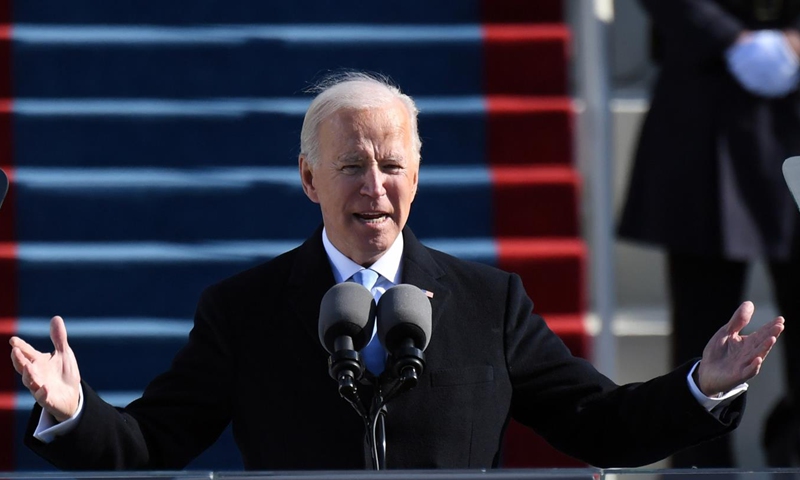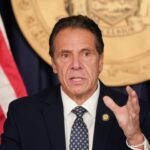Debate on a $3.5 trillion spending blueprint for President Joe Biden’s top priorities entered a second day on Wednesday in the US Senate, where lawmakers sparred over the need for massive spending to fight climate change and poverty.
After months of haggling, the Senate on Tuesday passed a $1 trillion infrastructure bill in a bipartisan 69-30 vote, proposing to make the nation’s biggest investment in decades in roads, bridges, airports and waterways. But the measure faces an uncertain future in the House.
Democrats in the Senate turned to a budget resolution containing spending instructions for the multitrillion dollar package, which includes provisions to create universal preschool, affordable housing and climate-friendly technologies.
The bills have been a top priority for Biden, who has sought to enact sweeping changes during a time when his Democratic party narrowly controls both congressional chambers and where they fear loss of legislative control in the looming 2022 elections.
The Democrats plan to push the package through over the next few months, using a process called “budget reconciliation,” which allows them to pass legislation with a simple majority vote.
On Tuesday, the Senate began a “vote-a-rama,” a process that gives senators the opportunity to propose amendments to the budget resolution. It continued on Wednesday. Debate can run for days unless party leaders agree to a shorter period.
Republicans railed against the $3.5 trillion spending plan. Senate Republican leader Mitch McConnell, who voted for the $1 trillion bill, called the larger proposal “radical.”
Dozens of Republican senators signed a pledge not to vote to raise the nation’s borrowing capability when it is exhausted in the autumn in a bid to curtail Democrats’ spending plans.
“They [Democrats] shouldn’t be expecting Republicans to raise the debt ceiling to accommodate their deficit spending,” Senator Ron Johnson, a Republican who circulated the pledge, told the Wall Street Journal.
Failure to increase or suspend the statutory debt limit – now at $28.5 trillion – could trigger a federal government shutdown or a debt default.
Treasury Secretary Janet Yellen this week urged Congress to raise the debt limit in a bipartisan vote. On Tuesday, Yellen endorsed moving forward with the larger spending package, saying the $1 trillion infrastructure plan should have a sequel.
On Tuesday, Biden lauded the 19 Republicans who voted for the bipartisan $1 trillion infrastructure measure. “Here on this bill, we’ve proven that we can still come together to do big things – important things – for the American people,” he said.
But it remains unclear how soon the House, which has a slim Democratic majority, will take up the measure.
US President Joe Biden delivers his inauguration speech on Wednesday at the US Capitol in Washington, DC. Biden was sworn in as the 46th president of the US. He signed 17 executive orders, memorandums and proclamations hours after his inauguration. Photo: AFP



